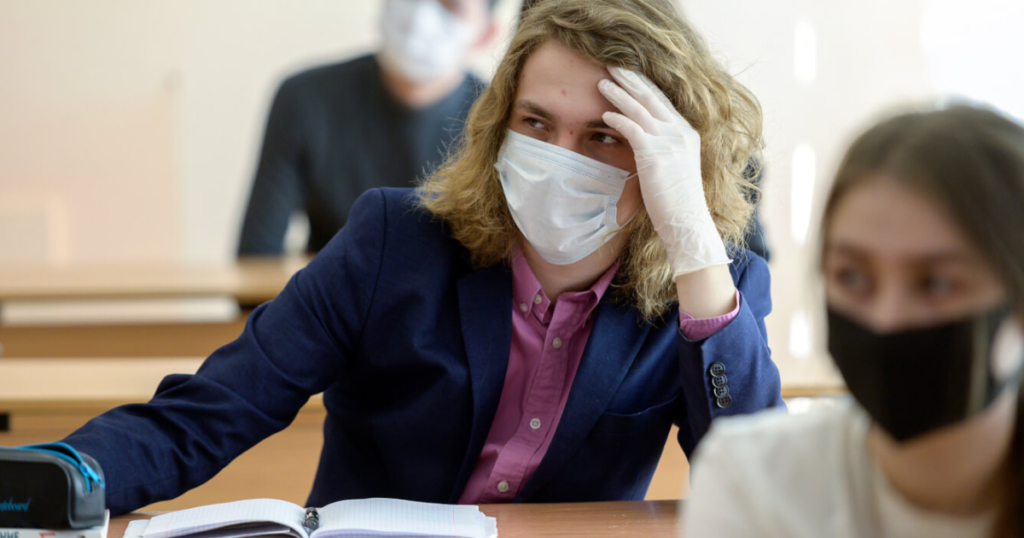
Russia greenlights exam for 700,000 schoolchildren
For 700,000 high school leavers, the main issue during the pandemic has not been a military parade, but the status of the Unified State Exam (USE) that is required by all Russian universities. The USE usually takes place in May, but was suspended this year. Officials have been terrified that allowing it to go ahead could cause a spike in the infection rate, and dithered for two months. Eventually, Putin had to interfere. This story shows how government works in Russia, and how Russia’s education system differs from its Western equivalents.

- The USE is a standardised exam required for university admission. It was made compulsory in 2009, and has been fiercely debated ever since. Some say the USE reduced corruption in universities (they previously had their own exams), and made the system fairer. Others argue that written tests are a bad way to assess ability, and that they are still corrupted by unscrupulous teachers.
- The date for this year’s USE was set as May 25 at the end of 2019. But in March it was postponed, and months of uncertainty followed. The three government departments responsible for education could not agree on how to proceed. The deadlock meant Putin got involved, “carefully studied all the options,” and made a decision, according to one education official. The exam will now be held in early July.
- Holding the USE in the midst of a pandemic is a scary prospect. The USE is a written exam for which pupils from different high schools are mixed and assigned to different buildings. As a rule, each pupil sits between 2 and 4 exams, which means each pupil comes into close contact with up to 80 others. This year, exam desks will be 1.5 meters apart and the examiners will wear gloves and masks. But there are no rules preventing students gathering in front of schools or on public transport.
- Why did the authorities decide to hold the exam? Apparently, they had no other option. Postponing the USE until the end of August was unreasonable, according to one official, who said that students would never sit at home all summer. According to him, online exams were also impossible. And key players in the online education market agreed, pointing out that about a third of Russian families don’t have computers at home. Finally, the format could not be changed. “Society expects the authorities to guarantee an honest exam. It is impossible to do this in a different format,” the official explained.
- Analogous exams exist in many other countries, most of which have been replaced. For example, in the United Kingdom, A-Level exams have been substituted with grades calculated by teachers. In Russia this would be impossible: the curriculum in the last two years of high school differs a lot from what the USE requires. Indeed, many pupils complain that the system means they have to do double work (even if many don’t take their high school grades very seriously). The grades awarded internally by high schools are not standardized in any way, and are different across the country.
Why the world should care
The USE has exposed the problems of Russian secondary education: both chaotic and difficult to digitalize. It will become clear by the end of July whether these problems will result in a spike of COVID-19 cases. Scientists surveyed by The Bell said this could be avoided, but only if there are no crowds. So far, nothing suggests that this will be the case.



